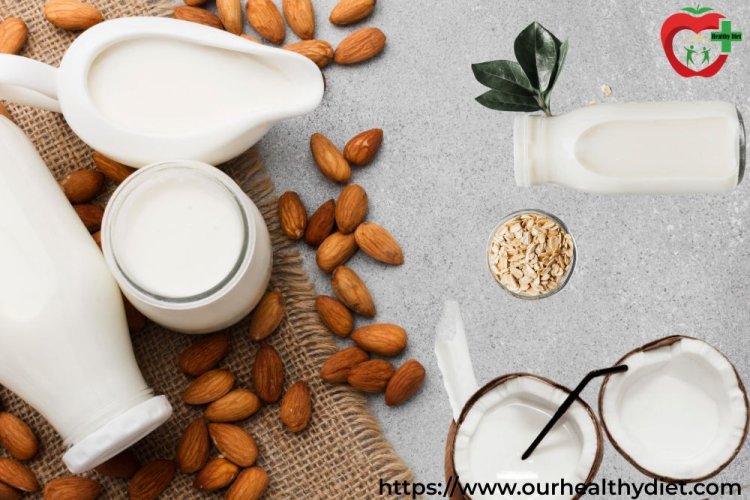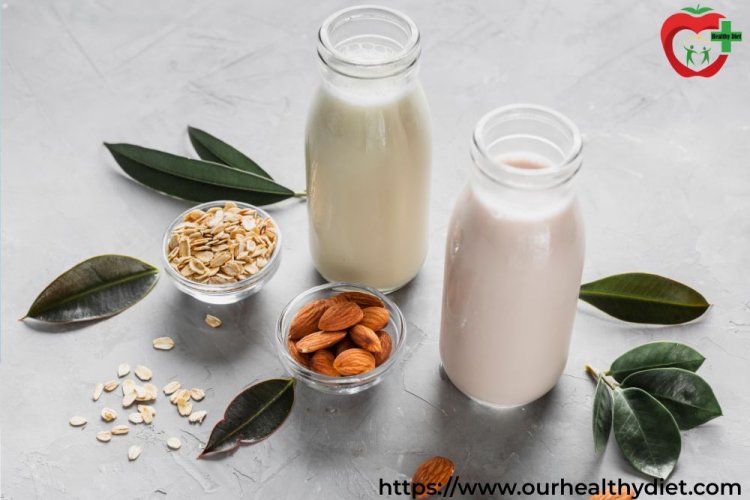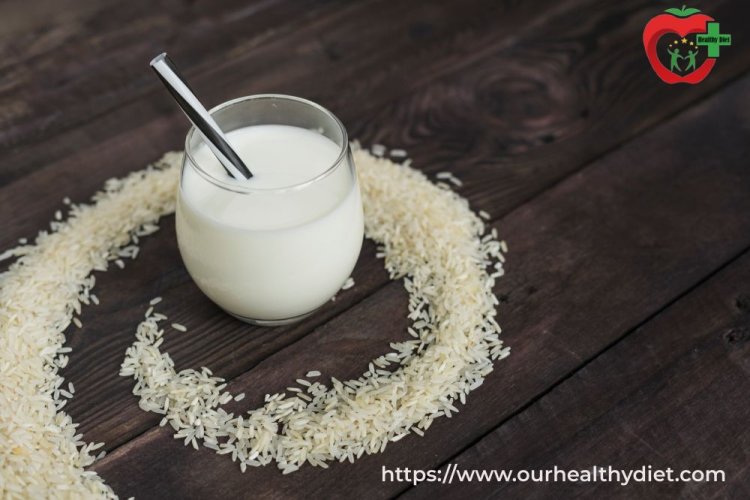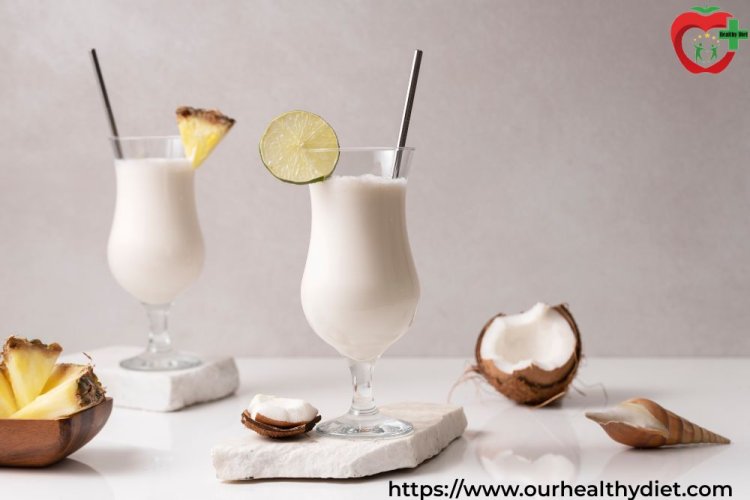Milk, Its alternatives and Benefits
Milk is an excellent source of calcium, protein and vitamin B12, an essential nutrient for the elderly. Milk may promote healthy ageing is because of the nutrients it contains

Milk is one of the most fundamental foods, making up a full meal and providing numerous necessary elements, including calcium, even for adults. Since the beginning of time, humans have consumed animal milk, typically that of cows, buffaloes, and goats.
Source
Animal milk has been consumed by humans from the beginning of time. Typically, cow, buffalo, and goat milk are used. Sheep, mares, and camels are also employed as this source in various countries. It represents a major ingredient in our diet- poured over cereals, drunk in glasses, in tea and coffee- but it also enters the composition of many dishes, especially desserts such as ice cream, custard, pancakes, rice puddings, etc. Although it has a good amount of fat, it has a very high calcium content.
Composition
Although it has a good amount of fat, it has a very high calcium content. Whole milk, or milk from the cow, is made up of 88% water, 3.25 per cent fat, and 8.25 per cent other solids, such as protein, lactose, and minerals.
History
It can be defined as a white opaque slightly sweet nutritious liquid secreted by the mammary glands, It has always been a symbol of fertility and wealth since biblical times. Zebus and water buffalo milk were considered sacred in Asia and India, although the Romans and the Greeks preferred goat and ewe milk and also drank asses, mares, and camels' milk. It has a flourishing population of microbes. This is vital for the natural coagulation of milk, but it can be harmful that is why various methods are used to pasteurize or sterilize it, thus avoiding deterioration and prolonging the length of time it can be stored.
Health Properties
May Improve Oral Health
In addition to being a great source of protein for vegetarians, it is high in calcium and vitamin D, two important nutrients for bone health. The mineral calcium is needed to build and maintain strong bones and vitamin D helps absorb calcium from the food we eat. It is an excellent source of both nutrients, making it one of the best foods to include in your diet for lifelong oral health.
This Allows you to Achieve your Weight Loss Goals
There are many misconceptions about its effects on weight. However, research shows that if you're looking to lose weight or maintain a healthy weight, there's probably no harm in eating dairy regularly. This is primarily due to the satisfactory composition of carbohydrates, proteins, and fats contained in it. Proteins and fats saturate it and help to lose weight. Carbohydrates provide energy and support the normal functioning of the body. The food you eat makes you feel happier, helps you eat, and keeps you full, making it easier to maintain a healthy and balanced diet. A meta-analysis of controlled studies — the gold standard of research — published in the journal Nutrients found that reducing its consumption on a low-calorie diet reduced muscle breakdown while increasing weight loss and fat loss. However, this does not mean that milk is a panacea for weight loss. According to a review of other studies, ingesting it and other dairy products does not cause weight loss, but it also does not cause weight gain. Whether you're trying to lose weight or maintain a healthy weight, if it's your favourite food, drinking a glass of it every day can help to achieve this purpose. It may reduce the risk of diabetes consuming dairy products may reduce the risk of type 2 diabetes. Total dairy consumption was found to be negatively correlated with diabetes risk in a review of 22 research (including over 600,000 persons). This means that the more milk you drink, the less likely you are to get sick. Other studies have shown that replacing your drinks with milk also lowers the risk of type 2 diabetes. Some studies have shown that dairy products reduce the risk of stroke, cardiovascular disease, and high blood pressure, possibly due to their potassium content, while others have concluded that most dairy products reduce stroke risk primarily because of saturated fats. associated with high acidity. . of the content Many studies have shown that there is no link between milk consumption and heart disease. What is it? Recent studies have shown that milk can have both positive and negative effects on heart health. As with any food, eat in moderation if you like it.
Improve Brain Health
Its excellent nutritional profile may be one reason why it supports mental health in old age. A 2021 review of research published in the journal Nutrition & Metabolism found that consuming dairy products was linked to a lower risk of Alzheimer's disease. Another 2020 study published in Nutrients found that low-fat fermented milk and butter were linked to better leadership function. Therefore, adding it to oatmeal in the morning or adding it as a snack can help improve brain health.
Decrease the Risk of Cancer
Studies show that it can reduce the risk of some types of cancer and increase the risk of others. A study published in the journal Nutrition & Metabolism found that consuming dairy products was associated with a lower risk of colon cancer. The mechanism for reducing the risk of cancer is unknown, but researchers believe the calcium in dairy products may have chemopreventive properties. Another study included in this review found that high or low intake of dairy products was associated with an increased risk of prostate cancer due to higher calcium content (although these effects were not seen with calcium supplements or non-dairy sources. There isn't enough evidence to draw any conclusions about breast, bladder, ovarian, or other cancers.
Beneficial for Bones
Dairy consumption has long been associated with bone health. This is due to a potent combination of nutrients such as calcium, phosphorus, potassium, protein, and vitamin K2 (found in grass-fed dairy). All of these nutrients are important for keeping your bones strong and healthy. about 99% of the calcium in the body is stored in the bones and teeth. It is an excellent source of vitamin D, vitamin K, phosphorus, magnesium, and other nutrients the body needs for proper calcium absorption. Adding milk and dairy products to your diet can help prevent bone diseases like osteoporosis. Studies have shown that it is associated with a reduced risk of osteoporosis and fractures, particularly in older people. In addition, it is a good source of protein, an important nutrient for bone health. Protein makes up about 50% of bone volume and one-third of bone mass There is evidence that higher protein intake prevents bone loss, particularly in women who have not been getting enough calcium.
Useful for Teeth
It is good for your teeth, It contains casein, a protein that forms a protective layer on the tooth surface. This protein protects the hard layer of the tooth (the so-called enamel) from tooth decay. It is rich in calcium and phosphorus, minerals that repair tooth decay. These minerals help when bacteria and food acids attack tooth enamel. They tend to have a neutral pH and help neutralize acidic or sweet foods and beverages. Be sure to consume dairy products between and after meals. They stimulate saliva production. Saliva helps maintain and repair teeth, and the right amount of saliva helps keep your smile bright. Remember that consuming dairy is only part of a healthy oral lifestyle. Make sure you eat a balanced diet with vegetables, fruit, whole grain products, and foods rich in minerals.
Not Suitable for Everyone
It is good for some, but others cannot digest it or refuse to eat it. Many people suffer from milk intolerance because they cannot digest lactose, the sugar found in it. Interestingly, about 65% of the world's population is lactose intolerant. Some people avoid it and dairy products for nutritional, health, or ethical reasons. Whether you're lactose intolerant, vegan, or looking to change your daily habits, dairy products offer an excellent nutritional profile and a variety of flavours to pique your interest. The variety on store shelves can be overwhelming. So how do you choose the right dairy?
Kinds
Check out the nutritional facts of these six popular kinds.
Soy Milk
It has been the most popular dairy product for decades due to its similar nutritional composition to cow's milk. Whole milk is the best protein substitute. It provides about 7 grams of protein per cup. The majority of brands, but not all, are fortified with calcium and vitamin D. Read the nutritional information on the label carefully, then. It is light and low in calories and tastes like vanilla.
Almond Milk
It is a great alternative to milk when you're looking to cut calories. This is made from water and almond flour. The bad news about it is that it's low in fat. Only 1 gram per serving cup. Most almond milk is fortified with vitamins and other nutrients, but some do not contain vitamin D or calcium. Due to the healthful unsaturated fats that make up its calories, it is creamier and thicker than other milk.

Rice Milk
Rice pudding is a good option if you're in the mood for something medium and not too greasy. Fortified milk generally contains the same calcium and vitamin D as cow's milk. This replacer is protein-free and only contains 1 gram per cup.

Coconut Milk
This is one of the newer non-dairy products on the market. It is great when you're in the mood for something sweet and salty. This provides 30% of the daily value (DV) of vitamin D and 50% of the daily value of vitamin B-12 but is low in Ca and less protein per 1-gram serving. If you're looking to reduce your saturated fat intake, remember that this kind is the only alternative that contains as much saturated fat as sweetened milk.

Hemp Milk
Water and hemp seeds are used to make it. It contains beneficial nutrients like calcium, and vitamin D and is high in protein (about 3 grams of protein per cup). It also contains omega-3 fatty acids. Unfortunately, some people find it difficult to taste it.
Cashew Milk
It is one of the freshest choices. It is made by mixing cashew nuts with water, creating a thick liquid. This is usually fortified with Ca and vitamins A, D, and B12. Different brands contain different amounts of nutrients. So make sure to review the nutritional facts. Its alternative is low in calories but also very high in protein – just 1 gram per serving] Cup
What's Your Reaction?




















